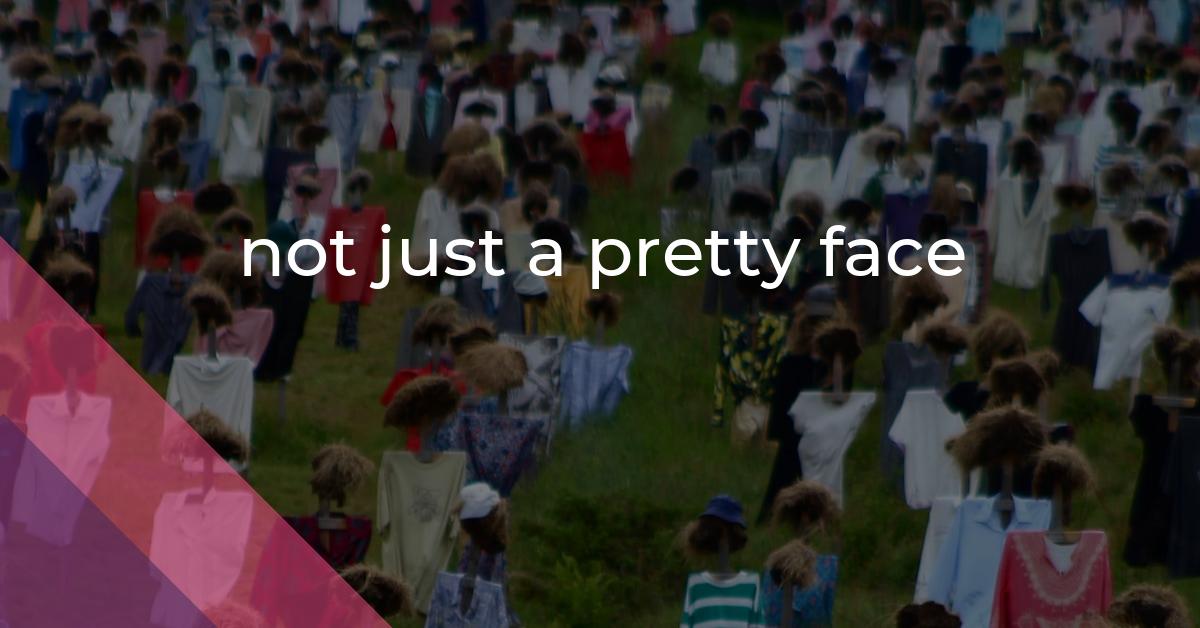not just a pretty face: Idiom Meaning and Origin
What does ‘not just a pretty face’ mean?
The idiom "not just a pretty face" implies that someone is not only attractive, but also intelligent, skilled, or talented in some way.

Idiom Explorer
The idiom "you can't judge a book by its cover" means that you cannot predict the true nature or value of something just by its outward appearance.
The idiom "pretty pictures" refers to visually appealing and attractive images or photographs. It is often used to describe something that looks nice or pleasing to the eye but lacks substance or depth.
The idiom "of an" is used to emphasize a particular quality or characteristic of someone or something. It indicates that the quality being mentioned is extremely notable or outstanding.
The idiom "not to put too fine a point on it" means to say something without being overly precise or explicit, typically to avoid causing offense or discomfort.
The idiom "not to mention" is used to introduce an additional point or example that strengthens a previous statement. It implies that the point being added is so obvious or well-known that it doesn't need to be explicitly stated.
The idiom "not much of anything" means a lack of substance, value, or importance. It implies that there is very little or almost nothing in terms of quantity, quality, or significance.
The idiom "nothing special" means that something is not particularly extraordinary or impressive. It implies that the person or object in question is rather ordinary or average.
The idiom "not as black as one is painted" means that someone's reputation or character is not as bad as others may believe or portray them to be.
The idiom "not a pretty sight" means that something or someone is unattractive or unpleasant to look at.
Hidden depths
The idiom "just another pretty face" is a related expression that carries a slightly different connotation. While the phrase "not just a pretty face" implies that someone has more to offer than physical beauty, "just another pretty face" suggests the opposite. It implies that someone is only valued for their appearance and lacks any notable qualities or abilities beyond that. This idiom is often used to describe individuals who may be seen as superficial or lacking substance, solely based on their looks.
The idiom "fine feathers make fine birds" is another idiom related to the concept of physical appearance. This idiom suggests that someone who appears well-dressed or stylish is automatically assumed to be of high quality or have admirable characteristics. It emphasizes the idea that outward appearances can be deceiving and that one should not judge or form opinions solely based on how someone looks. This idiomatic expression encourages individuals to look beyond the surface and consider other aspects of a person's character before making judgments.
The idiom "you can't judge a book by its cover" is perhaps one of the most well-known idioms related to physical appearance and the concept of not making judgments based solely on looks. It suggests that one should not form opinions or make assumptions about something or someone based solely on initial impressions. The idiom emphasizes the importance of evaluating individuals or things based on their inner qualities, rather than relying solely on external appearances.
Lastly, the idiom "good looker" is a straightforward expression used to describe someone who is physically attractive. Unlike the previous idioms that emphasize the need to look beyond appearances, this idiom acknowledges and appreciates physical beauty without any further implications of substance or qualities beyond that.
Understanding the nuances and related idioms surrounding the concept of physical appearance is important in recognizing the complexities of human perception and the need to move beyond superficial judgments. These idioms serve as reminders to value individuals for their inner qualities rather than solely focusing on their outward appearance. They encourage us to look deeper and appreciate the multi-faceted nature of individuals, recognizing that physical beauty alone does not define someone's worth or capabilities.
The idiom "not just a pretty face" carries a powerful message about the importance of recognizing and appreciating the talents, intelligence, and substance of individuals beyond their physical attractiveness. It challenges stereotypes and encourages the celebration of inner qualities. Related idioms like "just another pretty face," "fine feathers make fine birds," "you can't judge a book by its cover," and "good looker" further emphasize the complexities of human perception and the need to move beyond surface judgments. Understanding these idioms helps foster a more inclusive and well-rounded perspective, valuing individuals for their inner qualities rather than solely focusing on their outward appearance.
Example usage
Examples of how the idiom "not just a pretty face" can be used in a sentence:
- She may be beautiful, but she is not just a pretty face - she's also a talented scientist.
- Don't dismiss him as just a pretty face. He has a lot of intelligence and capabilities.
- She proved to everyone that she is not just a pretty face by excelling in both academics and sports.
More "Adjectives" idioms



